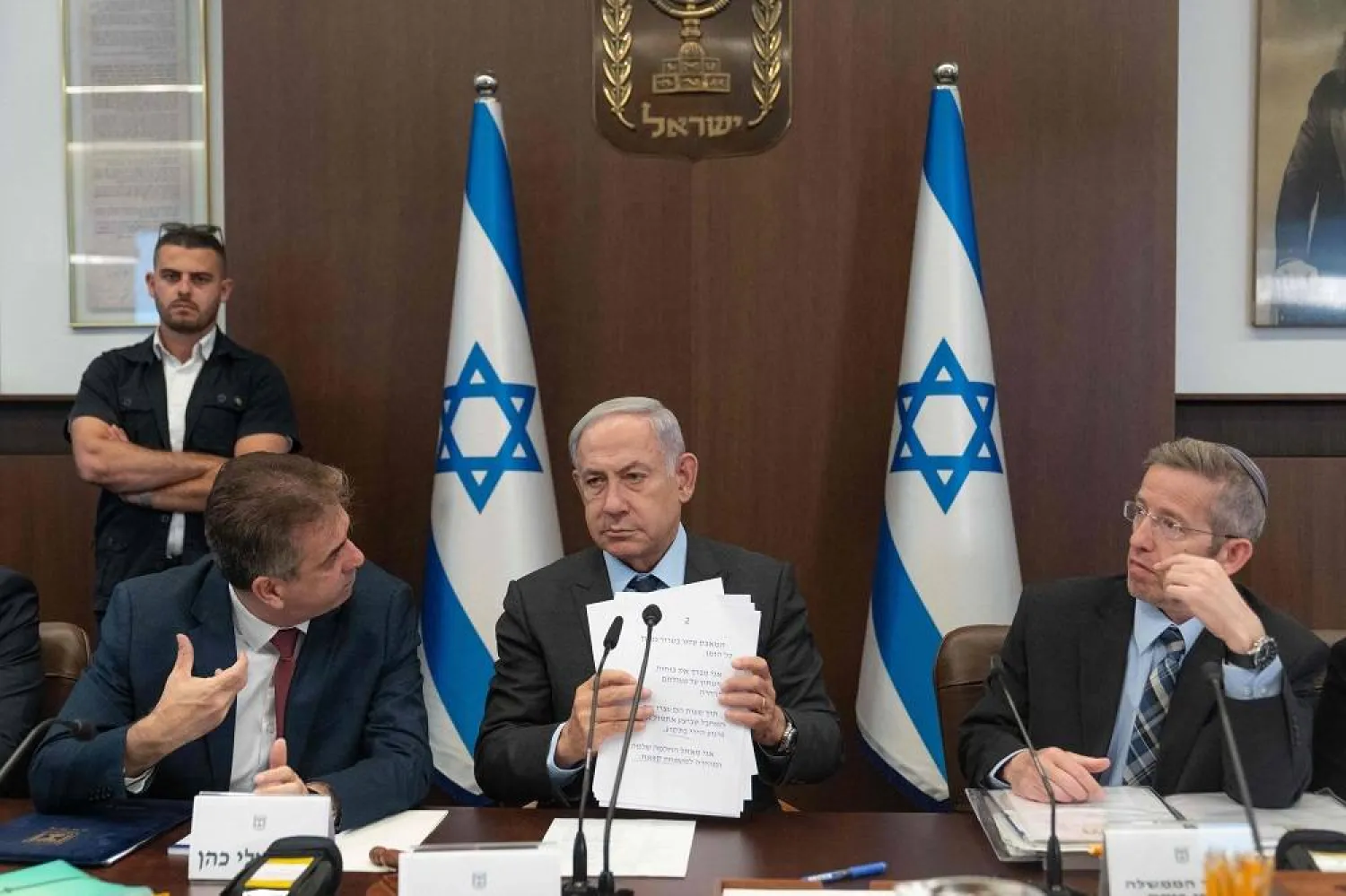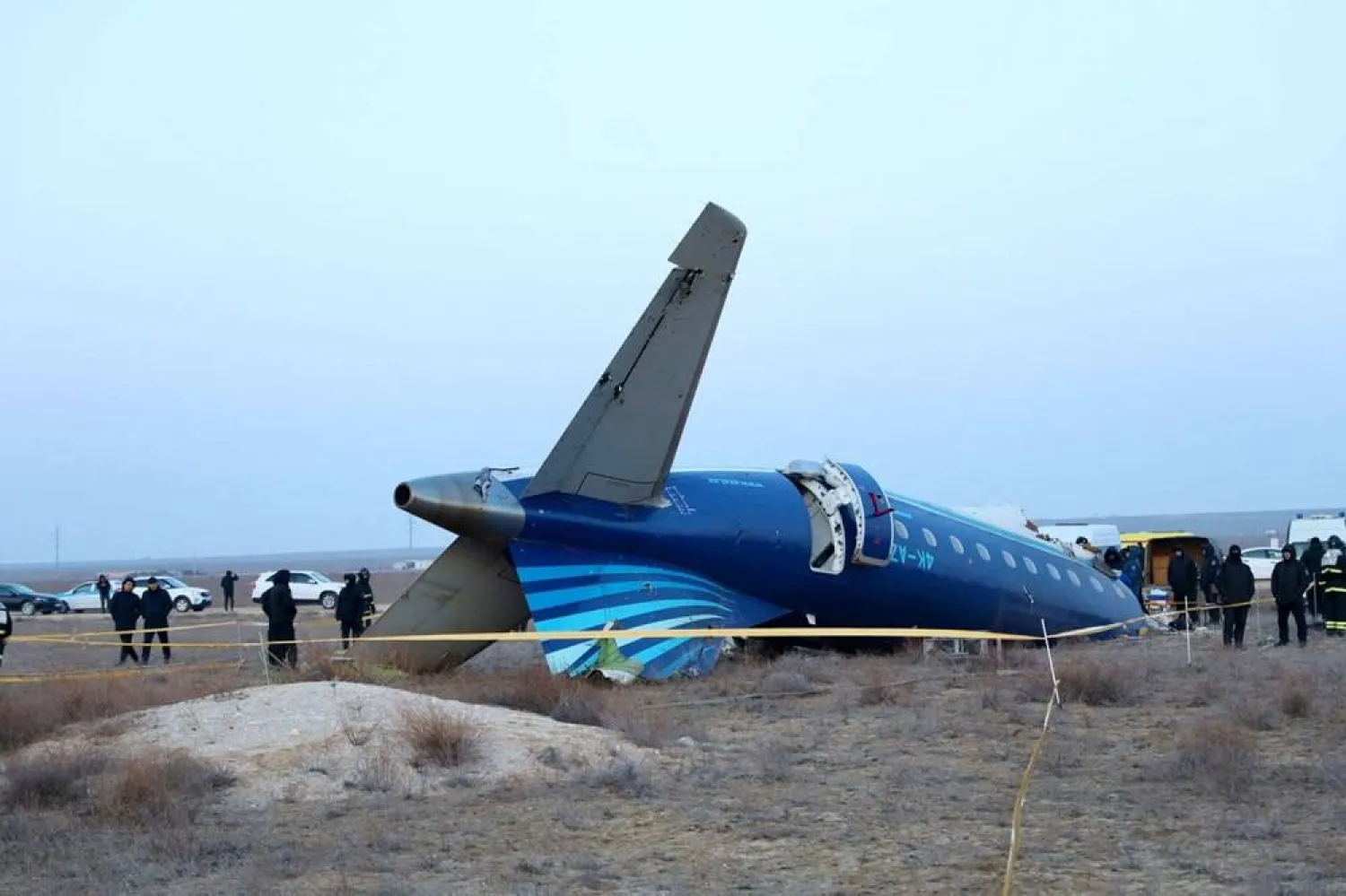Israel's governing coalition pushed ahead on Monday with its contentious plan to overhaul the country's judiciary, despite growing opposition from within the country's military and a wave of mass protests expected this week.
A parliamentary committee was preparing a bill that would limit judicial oversight on some government decisions, legislation that has sparked intensifying criticism from military reservists in elite units, including the air force and cyberwarfare.
Many have warned they will not show up for duty if the overhaul moves ahead. Reservists, who make up the backbone of the country's mostly compulsory military, played a key role in prompting Prime Minister Benjamin Netanyahu to pause the overhaul plan earlier this year.
In response to the legislation, which is expected to go before a final parliamentary vote early next week, a large protest movement is expected to stage a "day of disruption" on Tuesday. These days of mass protest in the past have snarled traffic, choked the terminal at Israel's main international airport and descended into clashes between police and demonstrators.
The judicial overhaul, advanced by Netanyahu’s nationalist and religious government, has deeply divided Israel, plunging it into one of its worst domestic crises and even sparking concern from its most important ally, the US.
Netanyahu paused the overhaul in March, facing a wave of mass protests, labor strikes that halted outgoing flights and many other sectors and pledges by military reservists to not show up for duty if the legislation advanced. Similar pressures are reemerging as the government resumes legislating the overhaul.
The government says the plan is meant to rein in what it sees as an overly interventionist judicial system and restore power to elected officials. Critics say the plan would upend Israel’s delicate system of checks and balances and push the country toward autocracy. They also say Netanyahu has a conflict of interest by trying to shake up the justice system when he is on trial for corruption charges.
Speaking at a meeting of his Cabinet on Monday, a day after being discharged from hospital for a dizzy spell, Netanyahu defended the overhaul and the bill moving forward now, which would prevent Israel’s courts from scrutinizing the "reasonability" of decisions made by elected officials.
He also slammed the recent wave of opposition from within the military.
"In a democracy, the military is subordinate to the elected government and not the other way around," he said. "Insubordination is contrary to democracy and contrary to the law."
A rising tide of criticism from within the military earlier this year prompted the country's defense minister, Yoav Gallant, to oppose the overhaul. His dissension led to Netanyahu firing him, which sparked the mass protests that forced the Israeli leader to freeze the legal changes and reinstate Gallant.
The government is moving forward with the plan after talks to find a compromise with opposition political parties failed. The legislation's advance also comes despite warnings from across Israeli society that the overhaul would hurt the country's economy, its military capabilities and tear apart its delicate social fabric. Israel's currency, the shekel, has tumbled in value this year after the plan was unveiled.
The "reasonability standard" allows the court to review key government decisions in order to protect against improper appointments and potential corruption. It was used by the Supreme Court earlier this year to strike down the appointment of a Netanyahu ally as interior minister because of a past conviction for bribery and a 2021 plea deal for tax evasion.
The government says the standard is arbitrary and overused by the courts to cancel decisions made by elected officials.
Critics say removing the standard would allow the government to appoint unqualified cronies to important positions without without oversight. They also say that it could clear the way for Netanyahu to fire the current attorney general — seen by supporters as a bulwark against the overhaul plan — or appoint legal officials who could ease his way out of the corruption charges he is facing in an ongoing trial.







